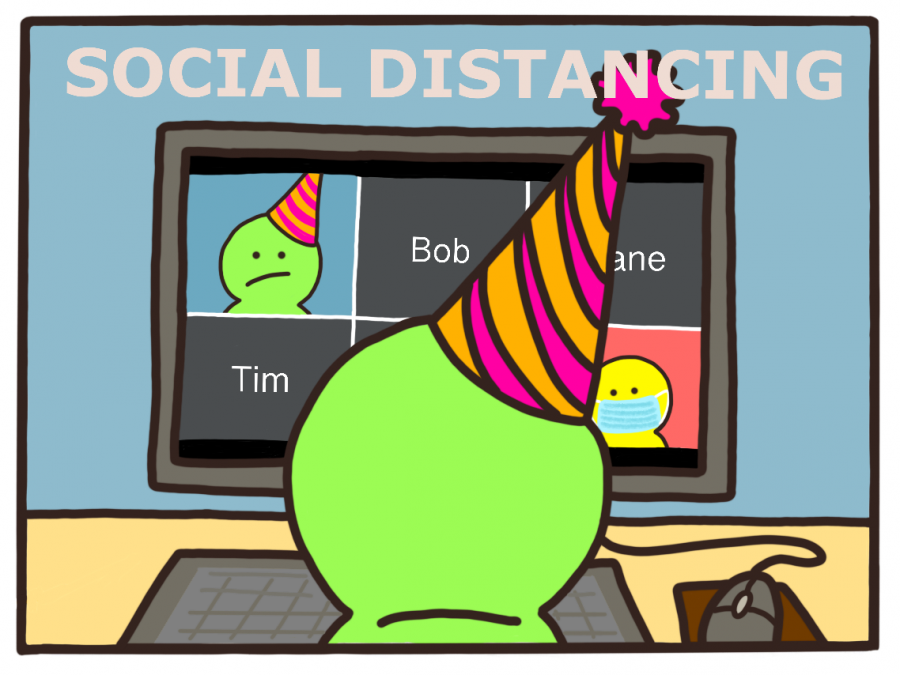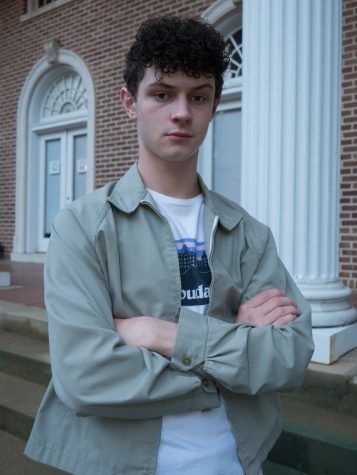Social Distancing is taking a toll on students’ mental health
Many students have had a hard time socializing with peers due to social distancing restrictions, leading many to claim that their mental health has deteriorated as a result.
January 28, 2021
When she talks about her first semester at MSMS, junior Audrey Robinson remembers most of all the loneliness.
“The first quarter of school before ever coming on campus was very lonely and almost made me regret applying to the school at all,” she recalled. “It was only once I got on campus I even felt slightly connected to my student body. Even after this original connection, going back online was just as lonely. I felt no connection to the people who I considered good friends while living on campus.”
For Robinson and her peers, the pandemic has distorted the initial experience of MSMS. Even after students arrived on campus in mid-October, socializing with their peers was still hindered by strict social distancing guidelines.
Both juniors and seniors have made it clear that the pandemic’s restrictions, as well as the hardships associated with online learning, have had a negative effect on their mental health. The simplest interactions between peers have been obstructed because they have to keep their distance. The only time they see each other’s faces is at meals or in Zoom meetings.
“I love being around people, and not having that social interaction has been tough on me mentally,” said junior Avery Short.
A lack of social interaction can have a negative effect on a person’s mental health, especially when combined with the stress of schoolwork and other responsibilities. Continuously alternating between at-home and on-campus learning has also been tough on many students, especially when they know they could be sent home at any moment because of a safety concern.
Despite such challenges, professional school counselor Dr. Heath Stevens emphasized the importance of maintaining healthy relationships with one’s peers. “Most people–even introverts–need at least a small amount of interaction to help process their thoughts or feelings or just simply feel some sort of ‘contact’ with another person,” said Stevens. “When people’s needs are not met, they certainly can suffer spikes in feelings of anxiety, sadness, loneliness, etc.”
The cafeteria has traditionally served as a hub for social interaction. Now that students are only allowed to sit two to a table, however, a major chance for forming connections with other students has been lost.
“My favorite time of day last year was lunch because it gave me the opportunity to sit with all my friends and talk,” said senior Kate McElhinney. “So many of MSMS’s best aspects have been greatly impacted, and I’m devastated that the juniors won’t get to experience it like I did last year.”
It is hard to tell right now when the number of COVID-19 cases will decline. Many students fear they will have a tough time adjusting to a normal on-campus lifestyle.
“I think we all long for the day we can be in each other’s rooms laughing, eating and hugging the way we usually would,” said Robinson. “But I think there will continue to be a level of paranoia and distance between us for quite some time.”
Some juniors fear that their altered MSMS experience will affect their ability to mentor the next class.
“My biggest disappointment is how this will affect next year’s juniors,” said junior Reagan Ishee. “With us as their seniors, we never got our own experiences and we can’t guide them like we are supposed to.”
Others voiced muted optimism for the future. As important as it is to stay safe in these unprecedented times, it is just as important that everyone remembers to maintain healthy relationships with their peers, even though it can be hard when restrictions are so tight. Mental health is just as important as physical health, and it must not be ignored. It is vital that the MSMS community sticks together, even when they are apart.
“I think that [once the pandemic is over], while I’ll be thankful to return to normalcy, it won’t be the same,” said McElhinney. “People will probably always be a little on edge about being in big groups or going out without masks or hand sanitizer. It’s going to take some getting used to, but I’m sure I’ll adjust pretty easily.”










